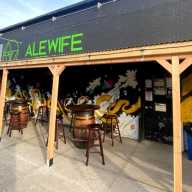By Alex Christodoulides
The object of the scam was to gull the firms into paying for products they had not ordered and did not receive, according to a criminal complaint filed in Manhattan federal courtMichael Garcia, U.S. attorney for the Southern District, and Phil Bartlett, acting inspector-in-charge of the New York office of the Postal Inspection Service, announced Michael Schlussel, 55, and Ana-Maria Saegiu, 50, both of Rego Park, had been arrested March 26 and charged in the scheme.Schlussel and Saegiu operated a collections agency called Alden Curtis and Michaels Ltd. and allegedly mass-mailed thousands of solicitations styled as invoices for $995 for fluorescent light bulbs, Garcia said. They were aware that businesses that process high volumes of invoices sometimes pay the invoices without verifying that the goods were actually delivered, especially in cases where the bill is for less than $1,000, Garcia said.The pair received at least $700,000 worth of checks as a result of the scam, Garcia said.Schlussel and Saegiu allegedly set up several shell companies for the purpose of sending out the invoice-style solicitations, with return addresses at mailboxes they opened at commercial mail receiving agencies, the U.S. attorney said. They allegedly used individual stamps instead of a mail meter that could be traced, Garcia said. The checks they received were allegedly double-endorsed and cashed into the account of the collections agency, Alden Curtis and Michaels, Ltd., in order to conceal the control of the funds, Garcia said.More than 100 companies that sent checks in response to the invoice-style solicitations confirmed that they did not order light bulbs, Garcia said. Several additional companies whose checks were cashed confirmed that they never received light bulbs afterward, Garcia said.Postal regulations require that on any mailing that could reasonably be interpreted as a bill, invoice or statement of account due, there must be a disclaimer in conspicuous boldface capital letters in a contrasting color which states that “this is a solicitation for the order of goods… and not a bill…. You are under no obligation to make any payments on the account of this offer unless you accept this offer,” Garcia said.The solicitations Schlussel and Saegiu allegedly sent out bore language similar to this disclaimer, but it was in small typeface, in black ink, within a paragraph with other information, and was not conspicuous, Garcia said.The U.S. Postal Service closed several of the mailboxes rented for the scheme when the renters of the boxes failed to appear at a hearing, Garcia said.Reach reporter Alex Christodoulides by e-mail at achristodoulides@timesledger.com or by phone at 718-229-0300, Ext. 155.



































